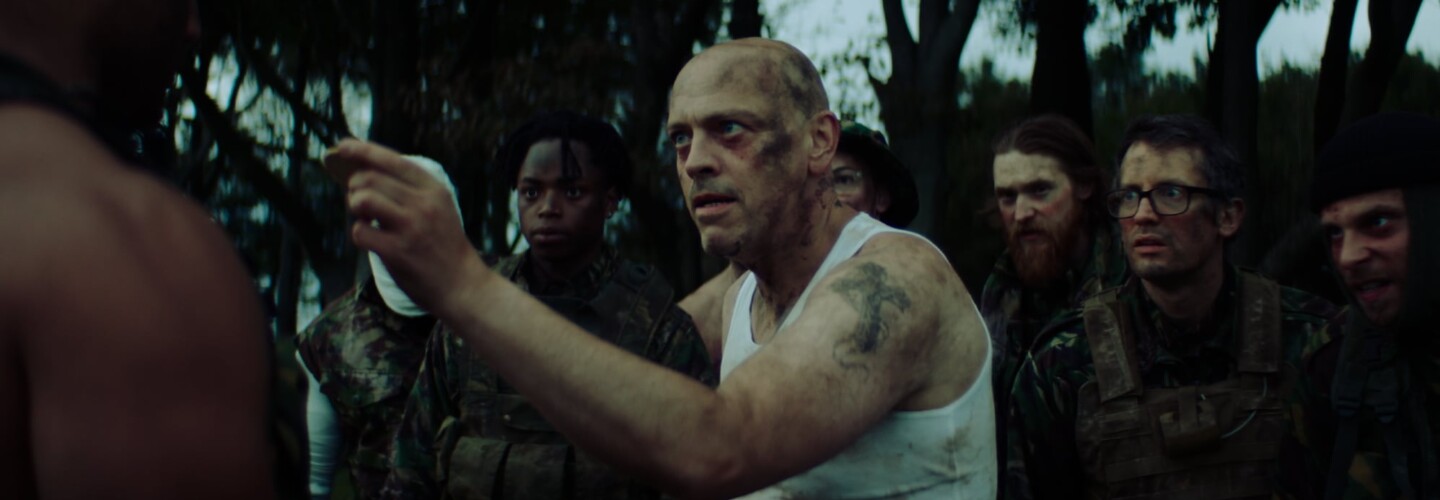
It’s no surprise that Writer/Director Emma Jesse faced a series of hurdles when pitching and producing her dark comedy short Soggy Biscuit. Her directorial debut doesn’t hold anything back as it explores toxic male masculinity and foolish bravado through the stomach churning game from which the idea for the film was born. Jesse heard a particular account of the so-called game during a shoot which led her to reflect upon the countless instances of men dismissing their concerns and feelings of discomfort with the well-worn “It was only a bit of fun” excuse. The reality is a covering up of deep-rooted insecurities and fears and this was something Jesse felt compelled to explore further and start a conversation around. Soggy Biscuit is laugh-inducing as much as it is cringe-worthy, a tricky feat enabled by the incredibly strong writing and planning underpinning the film which explores the peer pressure, humiliation and brutality in male groups that often stand in as substitutes for emotional vulnerability and support. After an eye-opening festival circuit run, Soggy Biscuit makes its online premiere on DN today accompanied by an interview with Jesse where we discuss the wave of false perceptions she faced trying to get the film made, initially struggling to find her feet when it came to film festival targeting and having to re-imagine a new ending to the whole film at the eleventh hour.
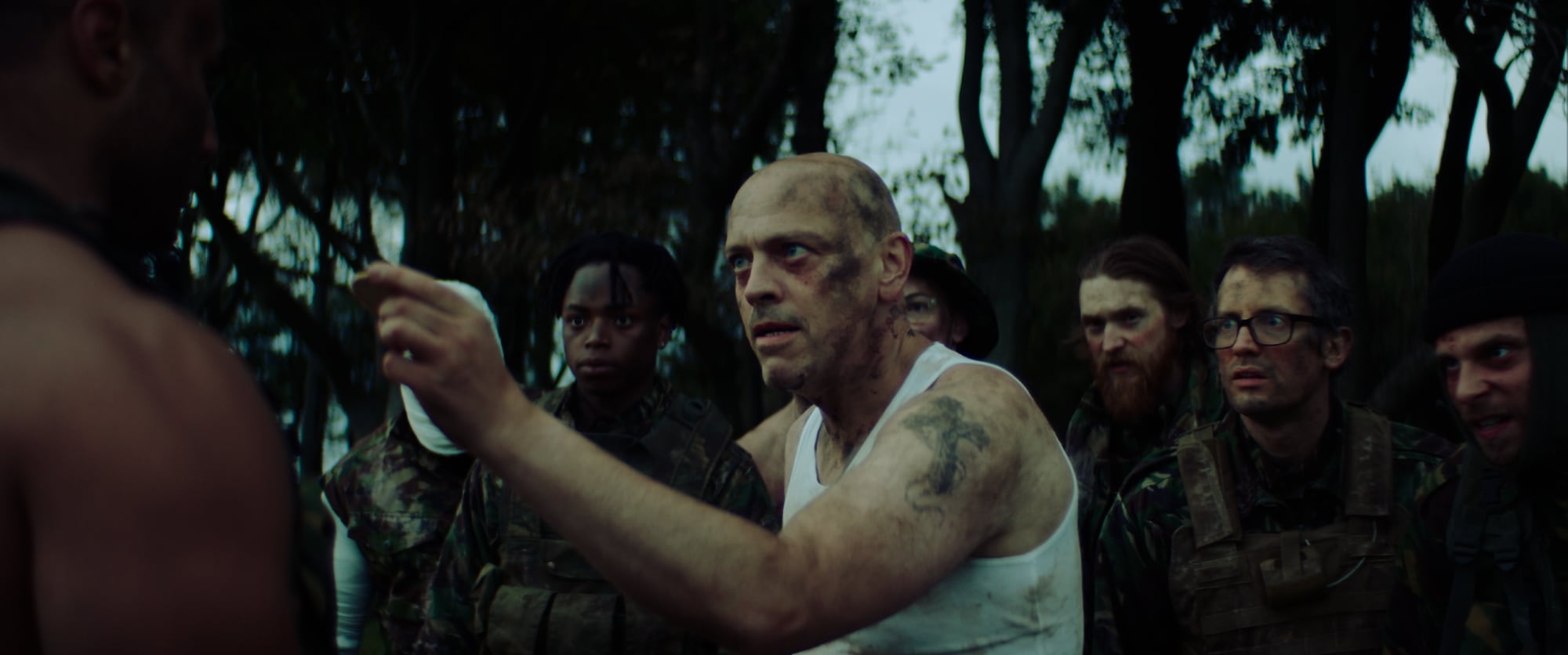
Where did the inspiration to talk about such a heavy subject matter through the lens of this incredibly toxic male ‘game’ come from?
I was told the soggy biscuit story on a shoot in Norway. He was an ex-soldier who thought that he was going to shock me but I ended up making him feel uncomfortable by asking him so many questions. I thought it was a pinnacle of toxic masculinity, a bunch of guys forced into playing a game by the minority and if they don’t, then they’re not going to be part of the group and they’ll risk being humiliated. I’ve met people who have tried to normalise it but after hearing that story I knew it was the perfect way for me to talk about a subject that I find important. A lot of my male friends and past partners used to always be so paranoid about not doing certain things because other men would judge them. I just felt that if they actually spoke about it to other guys they’d realise there wasn’t an issue. You can do whatever you want, wearing moisturiser doesn’t make you gay, it just says that your face is moisturised. You can wear a pink top without judgement but there is a straight jacket where straight men think they have to fit into a certain parameter which leads to a lot of insecurity. I wanted to create something that people can talk about, especially men.
The other inspiration came from working in the VIP section of a nightclub, which only stupid men pay for. They would be amongst apparent friends but putting each other down, often to look good in front of a woman and I questioned why they need to do that, it’s unnecessary. I realised later on it was because they’re not confident, they’re insecure because if they were secure, they wouldn’t need to prove anything, they’d be comfortable being themselves. I spent three and a half years seeing that and analysing it wondering why nobody was talking about it.
I wanted to create something that people can talk about, especially men.
Women have the Me Too movement where we can feel empowered and we can talk about the stuff that is actually wrong but I don’t think you get the same with men. I did quite a lot of research and there’s such a high percentage of young men committing suicide. Women have been taught to talk and communicate when we’re worried but there’s a closed off attitude to men talking and I think that starts off with games like this. I’ve heard other similar stories of these types of games where people don’t talk about these things and it made me wonder how is creating something traumatic OK? I hope that this film and people talking will mean that this kind of toxic gameplay, which happens a lot of times, will stop.
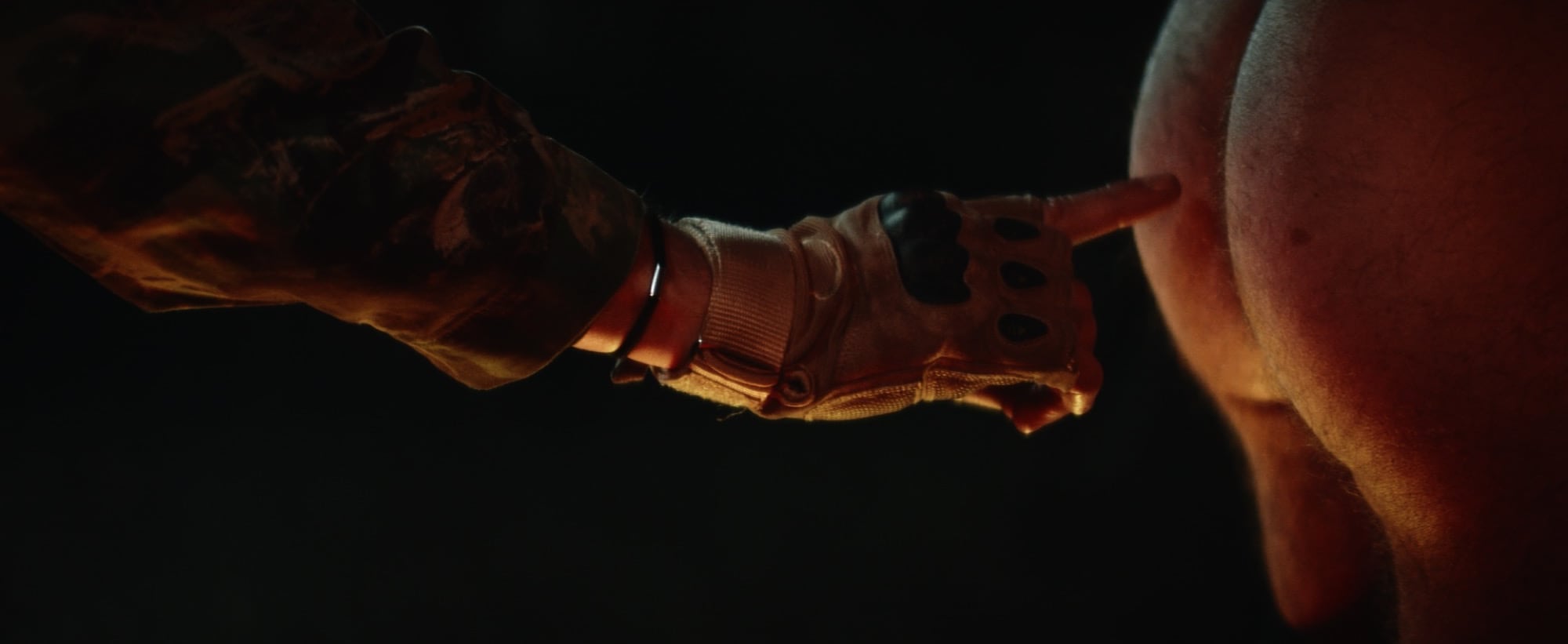
I loved the film from the start but found myself loving it even more when I realised it was written and directed by a woman.
It’s funny because I went to Aesthetica with my brother as he hadn’t seen the film and a group of students came out of the screening and they were commenting on how they would never be able to eat a biscuit again and we were laughing. They then turned to us and asked my brother if he was the director and when he corrected them, they were surprised. I don’t actually understand why they think a man wrote it as I don’t think most men would touch the subject matter. Furthermore, a lot of people have said to me that I don’t look like somebody who would write something like this, what am I meant to look like?
In the process of trying to get a crew I went to quite a few meet-ups and it was really difficult because most men thought I was doing a porno. The ones who were up for it thought that would be the content and a lot of women thought I was just being a pervert and assumed I just liked the subject of soggy biscuit, they just didn’t get the nuance. It’s hard to explain when you get to pitch something in five minutes. When I wrote the script, I kept being introduced at parties as the woman who has written a film about soggy biscuit. I automatically had to correct them and explain the subject and suddenly I had men coming up to me and telling me about similar stories, some of them a lot more horrific. When I asked if they had ever spoken about it they replied that you don’t talk about these kinds of things, if you do, then you’re a pussy because you should be able to handle it.
When I wrote the script, I kept being introduced at parties as the woman who has written a film about soggy biscuit, I automatically had to correct them and explain the subject.
This is why I wanted to make the film, I wanted to have these conversations and for men to be able to talk about it and register that it wasn’t OK. I’ve had men in their 60s who participated in such games and after watching the film ask me if they would have been subject of the Me Too movement if it was today. They didn’t see it as something wrong and we ended up having the discussion and which made making the film worthwhile. All the torture of making this film and all the struggles just to be able to have people coming up and talking about it and then questioning their actions.
It’s wonderful to win the awards you get in competitions but it’s just having that key reason. I could have quit quite a few times in the making of Soggy Biscuit. It took me three years to make. When I finished writing the script I did the storyboards, designed the set and costume, found a location and a week before I was going to find the crew, I lost it. Somebody broke into my boat where I was living and stole my laptop. I had put nothing on the cloud and I ended up having to use my savings to fix my door. I came out of that with only the rough script that I’d written by hand and I doubted if I should even do it, but every time I read the script, it would make me laugh. Every time I spoke to somebody, we would have these really good conversations and it made me reflect on what I could actually do making the film and having somebody being able to see it for real. It was all self-funded so I’m glad I persisted and I saved up again as I knew I wanted to make Soggy Biscuit.
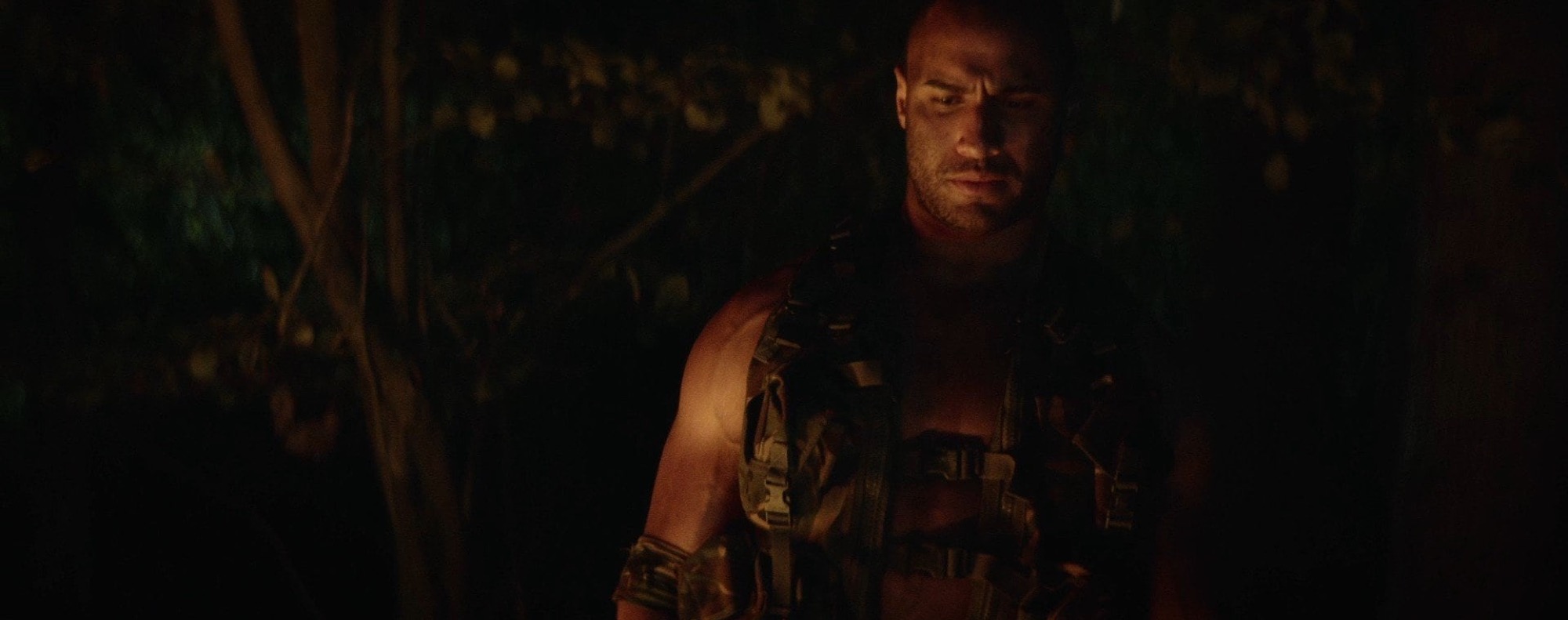
When it came to casting the film, how did you work to explain the motifs and the nuances to those who thought it was a porno?
I had 10 guys to cast and I wanted a mix of people, different ethnicities, ages, and backgrounds. When I first started doing the call out I was just getting rejection after rejection. People were actually sending me aggressive emails calling me “a sick fuck”. Some people were asking for more money to be in such a graphic film. Actors had full disclosure on the script and I was describing why I was telling this story but I was getting nothing. Two weeks before we were about to shoot people were telling me we were going to have to cancel but I knew it was now or never.
I ended up talking to one of the actors, Harry Palmer, who I went to university with and asked him why he decided to do it. He explained upon first reading the script he was adamant he wouldn’t but then upon rereading asked himself why it made him uncomfortable and realised working on this might actually improve him as an actor. We ended up having a deep discussion about it and I then rewrote my email for the casting explaining you don’t have to be comfortable with the subject matter, you don’t have to understand it, you just need to have the ability to explore. I think a lot of the men were initially reading it thinking they had to reject it otherwise people would think they liked the idea. As soon as I explained they didn’t have to be comfortable I had more and more people saying yes and then suddenly I actually had a choice of who I could cast.
I then rewrote my email for the casting explaining you don’t have to be comfortable with the subject matter, you don’t have to understand it, you just need to have the ability to explore.
In my casting process, I didn’t ask people to send a tape, I just spoke to each actor for about an hour or two and we ended up having really in-depth conversations about the subject matter, them as a person and their background. With each actor, I established if they were good people and able to have a laugh as if anyone was to take it too seriously it could really make everything so much more awkward. Luckily each actor wanted to push themselves and I think they worked so well as a group. I just didn’t give up, I tried different strategies and tactics to convince people.
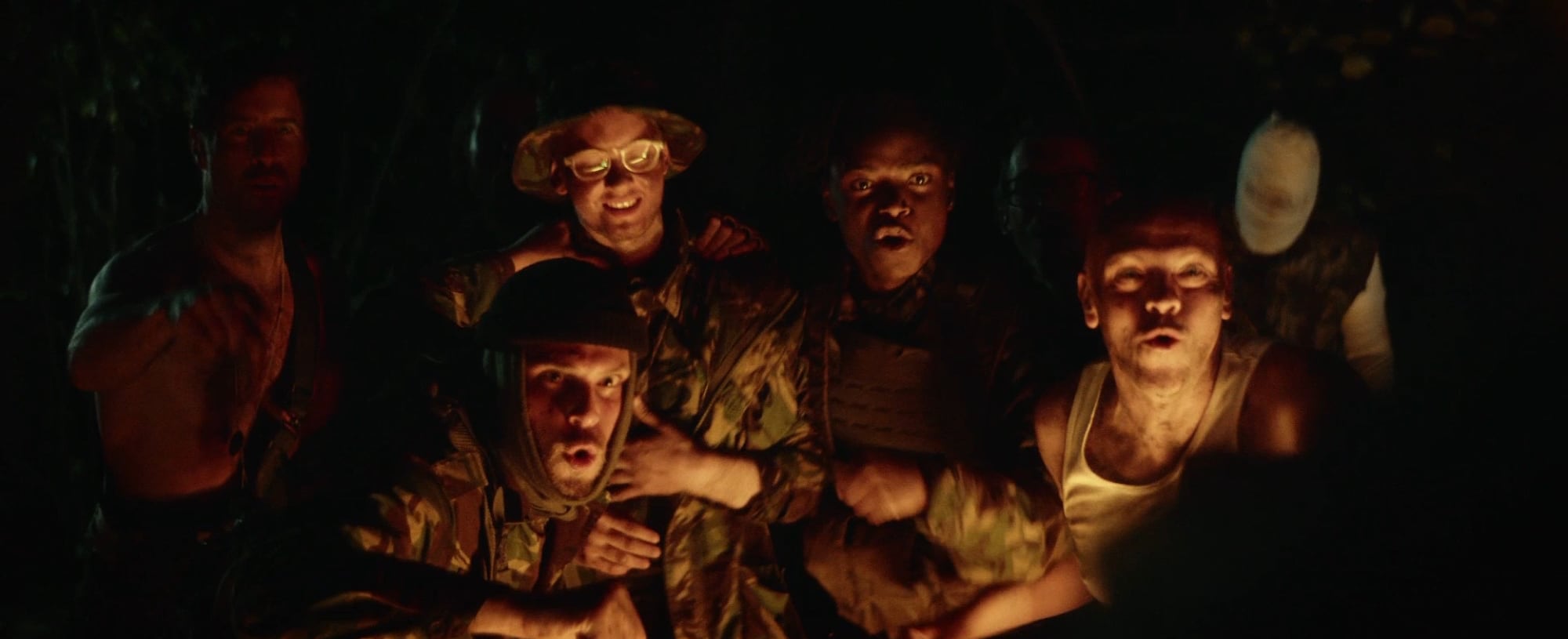
So how was it filming the actual soggy biscuit scene, what were the practicalities of shooting that?
Filming was quite stressful, it wasn’t locked down but it was restricted. I’d been planning to shoot it in London but realised how tricky it was going to be with logistics and taking into account I had 10 guys in army uniforms jerking off so I thought people were gonna be calling the police! I then had this epiphany and asked myself why I was making it so hard. My dad’s got a farm which has closed down but it has a campsite so everybody could camp. I ended up buying lots of tents so everybody had their own little space so they could feel safe.
I just didn’t give up, I tried different strategies and tactics to convince people.
COVID did save me from not looking panicked because I always wore a mask! I had only ever directed and filmed one small music video and suddenly I had 10 actors but I took a leaf out of theatre about rehearsals and getting together and into the mind space. I invited all the actors and crew to come the day before shooting and to have a bonding section so we could get to know each other. All the actors also got into costume and I bought laser tag and they got to play as their characters. I think that really helped them bond because, a lot of the time, when you see actors on set they don’t have that space to get comfortable with each other. Whereas in theatre you all literally spend weeks or months with people, really getting to know their characters. I would have loved longer but it’s a self-funded short.
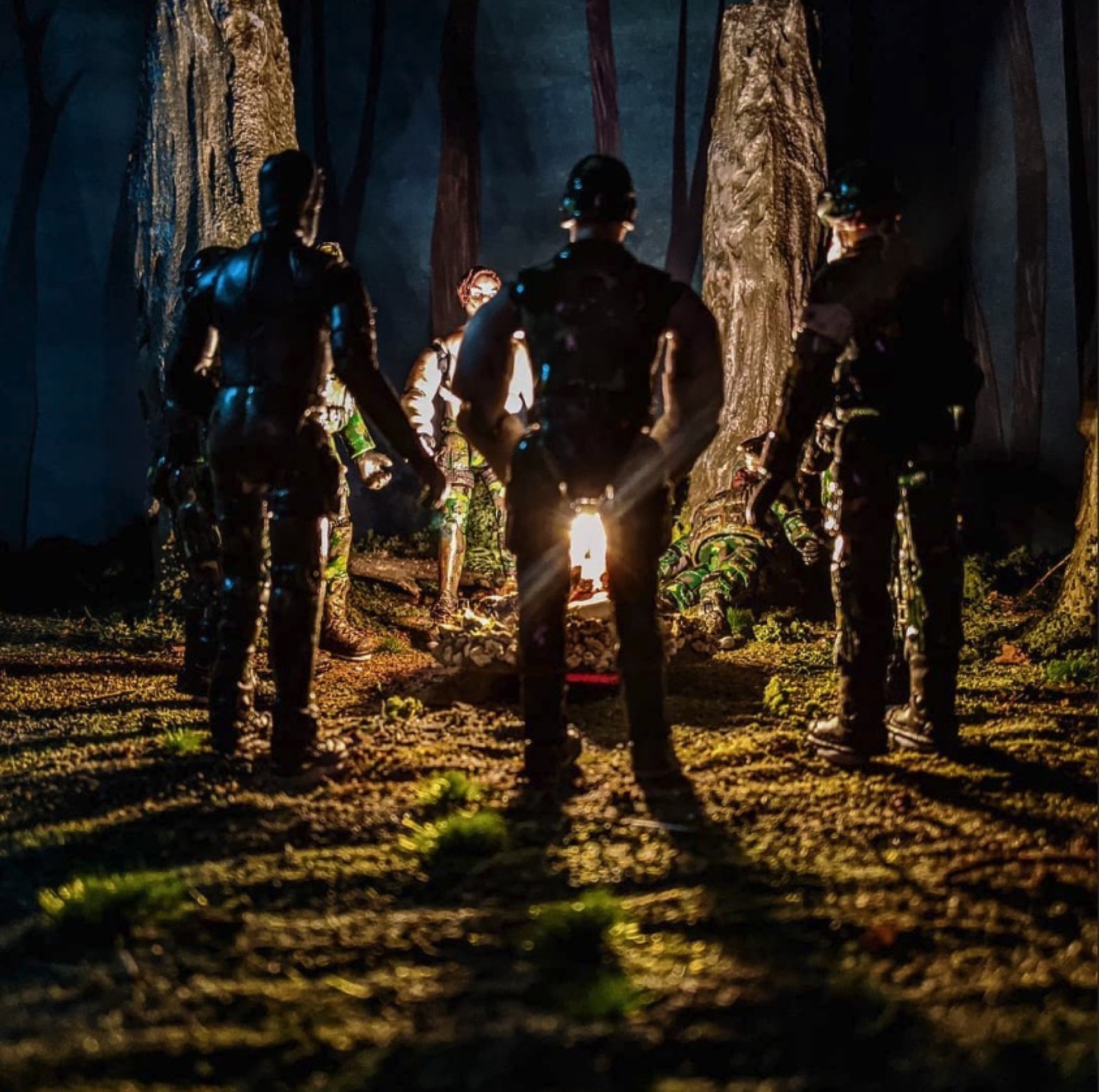
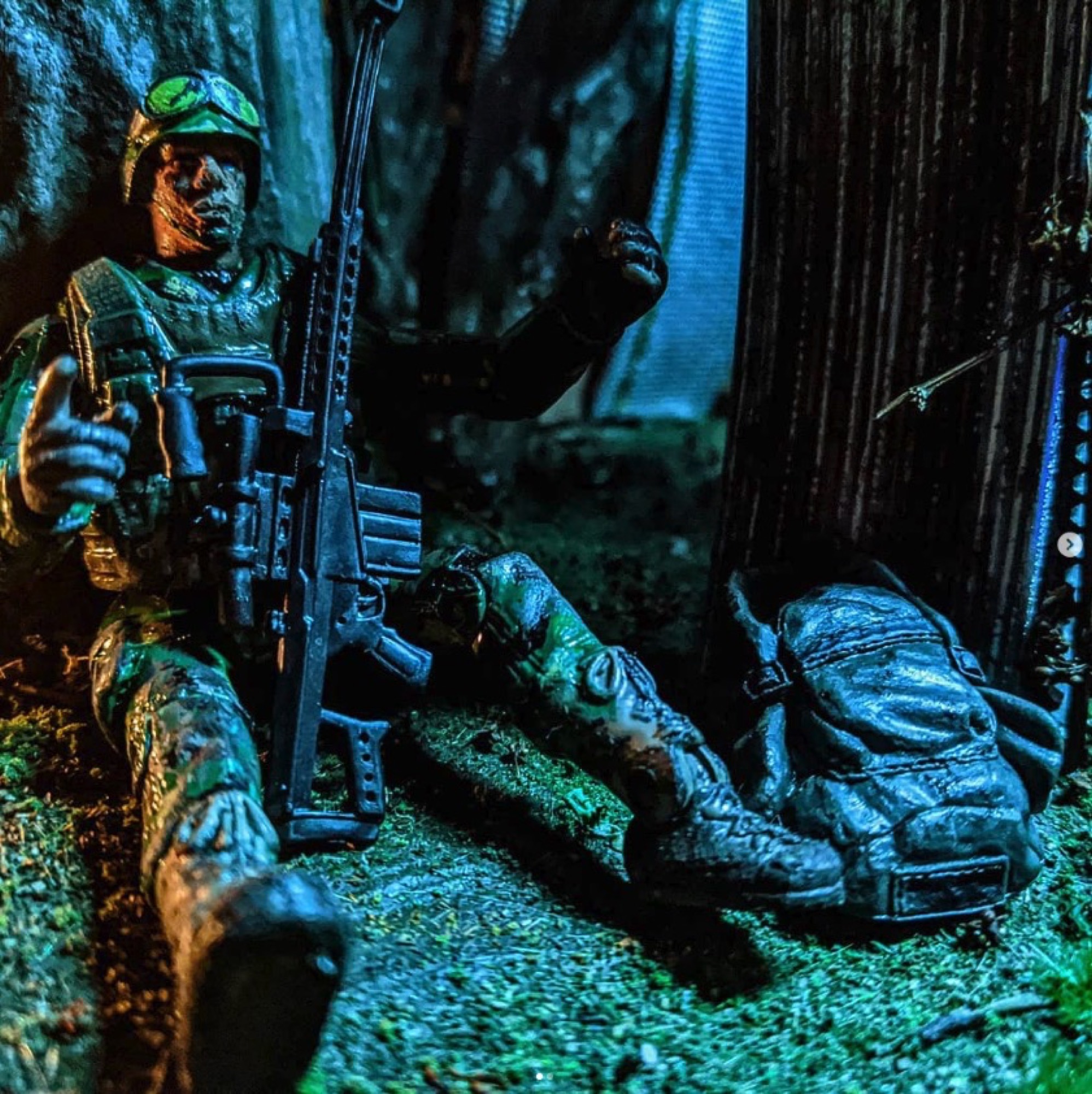
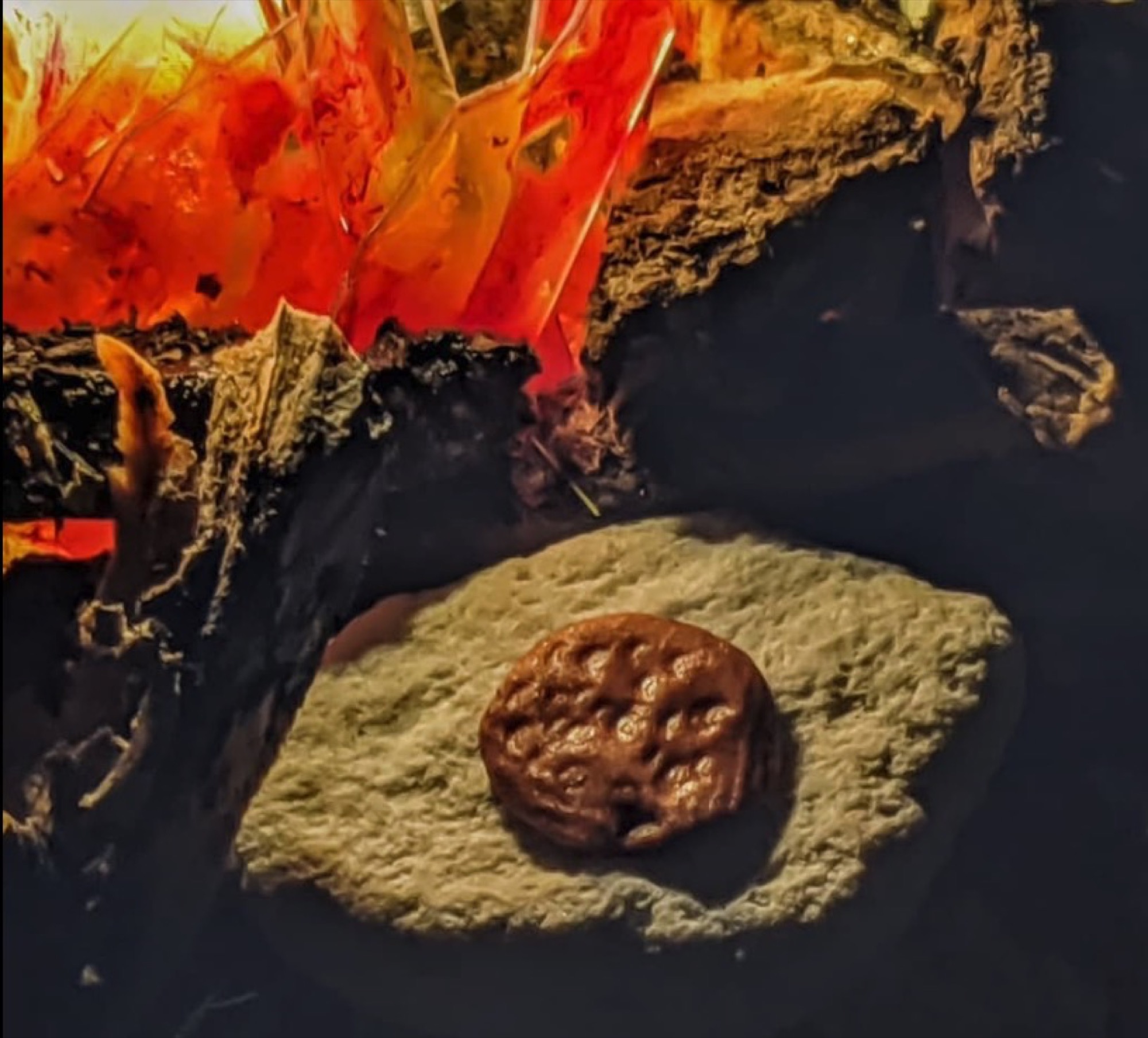
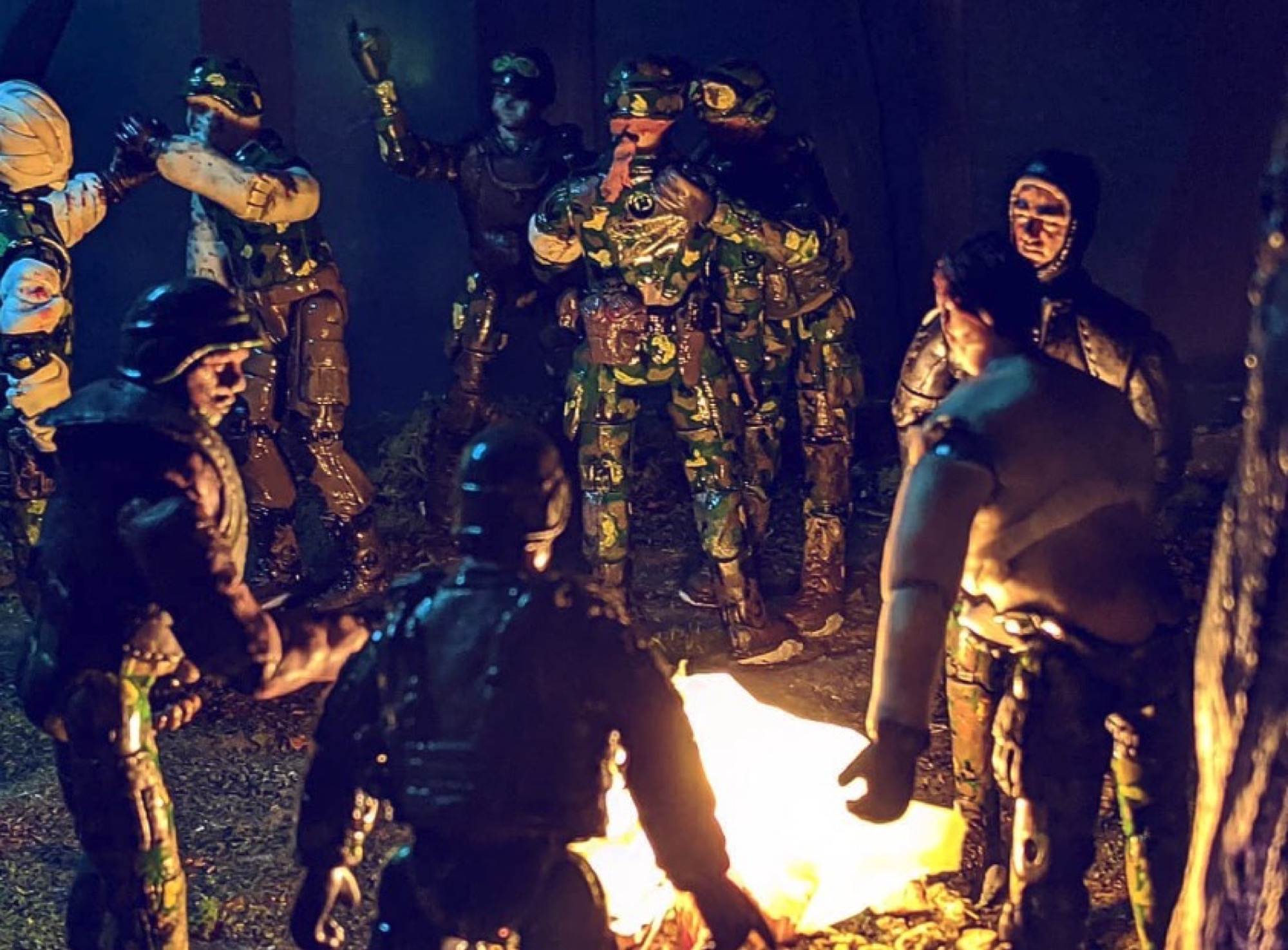
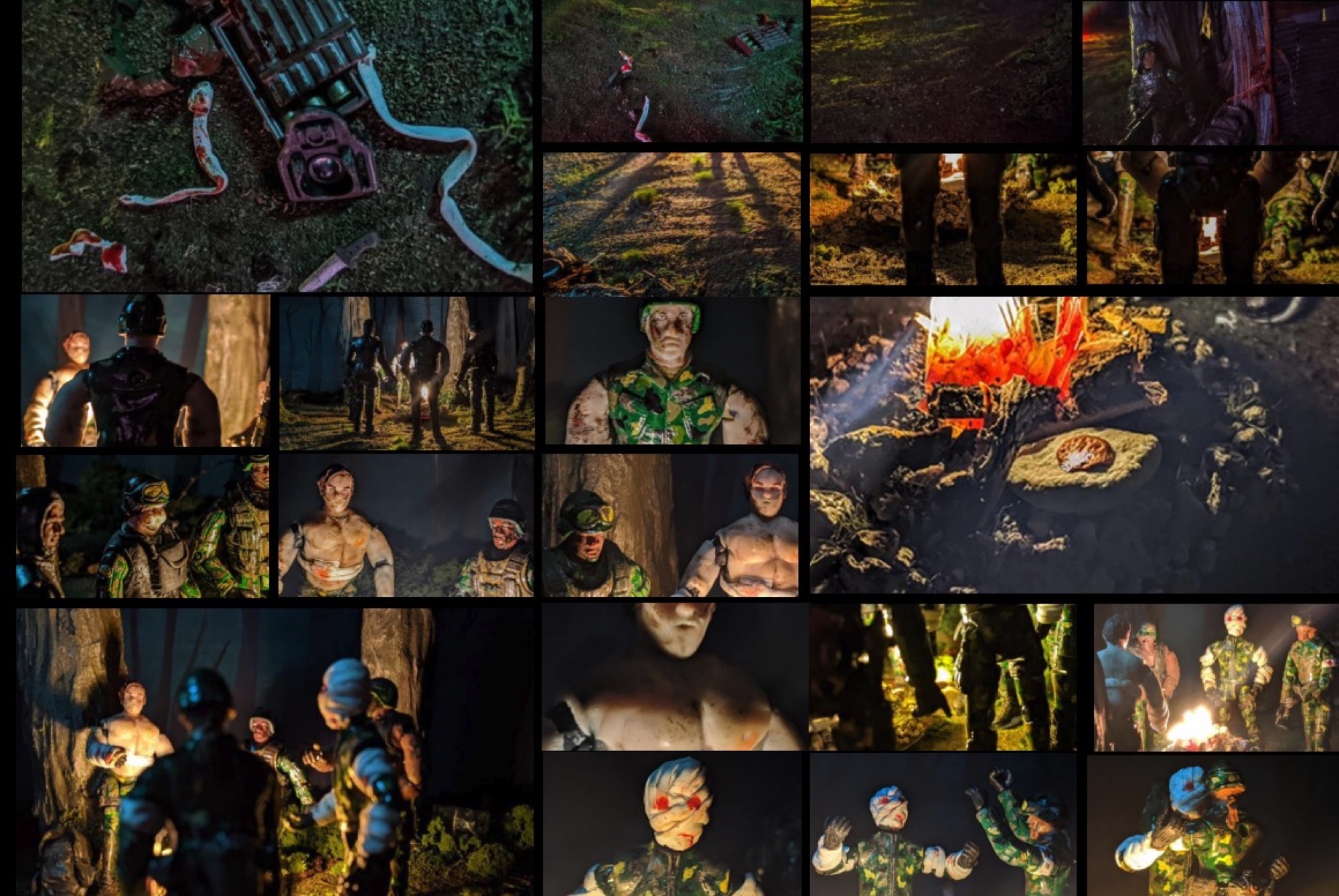
I thought that the actual masturbation scene was going to be really difficult and I was very open and told everyone they could approach me with any issues but they all took to it really naturally! We were quite rushed and we had some difficulties but when it came to it, we had no time to even panic and everyone just had to get into positions. I had modelled the scene in miniature and had little toys so when I was doing the storyboards I worked out all the different angles so when it came to actually shooting, I knew where each character was going to be because I’d spent hours doing that on the miniature set. You can’t actually see them masturbating so you need angles which I knew I had to work out.
Did all that meticulous planning make things smoother when you got into the edit?
A lot of people talk about how tight and snappy the edit is but it’s because we really didn’t have much to play with. My Editor Matt Gabzdyl was amazing and we worked really hard. We had quite a few technical issues because of shooting outside and we just ran out of time. It got to the point where we had a meeting and I had to throw out a few of the elaborate shots I wanted. We just had to go for what we needed and so most of the shots were only one or two takes. It would be different if it wasn’t all set in one space but for me, the most important thing I wanted was for each actor to have their little moment, having to work it out, there was a certain look I wanted from that moment and as long as I got that I knew I was okay.

You mentioned various obstacles during the filming, is there anything in particular that stands out to you?
My ending actually changed as I had problems with a prosthetic artist. Initially, I wanted Dibner, our main bully, to be shot in the head by a sniper and then the blood hits all the rest of the guys and then reality sets in as they realise how futile it is to be caring about the game when they are actually at war. I was suddenly panicked that the prosthetic head wasn’t finished and then even more issues arose and suddenly I had no ending to the film, so I decided instead to focus on the sound. The weather had changed by the end and we couldn’t shoot in the same location so I ended up shooting the closeup of a hand. Then I went to a park in London with all the actors and we recorded their reactions.
There was a certain look I wanted from that moment and as long as I got that I knew I was okay.
A lot of people think it’s stronger than what I wanted to do in the first place and I’m so happy it happened. It taught me a lot about simplicity. I come from an art background, and I wanted this effect and the exploding head but when we couldn’t, I realised the new strategy was stronger. You have all the panic from the guys talking, screaming and yelling but the audience is having to picture what’s happening. It could be lots of people being shot, but you just have the final scene with the biscuit which works really well.
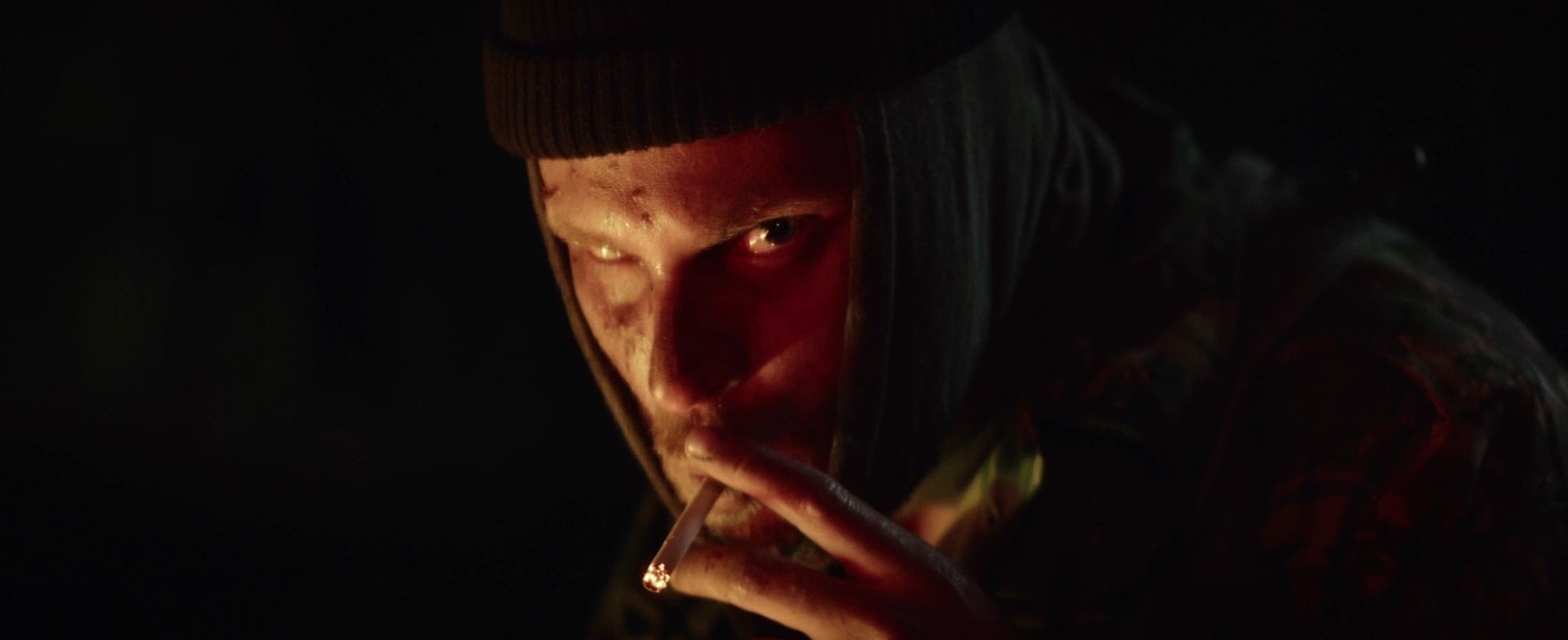
Because of the subject matter and people’s misconceptions did you struggle with finding film festivals to screen the film?
I don’t have a film background, I didn’t go to film school so I didn’t have any mentors or anybody to guide me. I submitted Soggy Biscuit to a festival guide programme that I hoped would be able to provide a plan of what festivals the film would be best suited to but was rejected – they got back to me and commented on how well crafted it was and original but they didn’t know where to put it. Because it’s got sexual content, it’s over 18 but most over 18s are horror or serious drama, not dark comedy. So I came out panicking as I had spent all of my savings on something which wasn’t going to make festivals because it was too weird.
In the end, we decided to focus on European and American festivals and avoid English ones but it started doing really well and it was only then that I started submitting it to English festivals as I missed the idea of talking to other filmmakers and getting feedback. It proves that you can’t give up just because somebody says it doesn’t work, it clearly does. There’s something there that people enjoy.
So what material are you looking to explore next?
My next short is called Smooth Sailing. Again, it’s a difficult subject matter about acquaintance rape. I read a book called I Never Called It Rape and it was talking about a study in America where a lot of women were being raped but because it wasn’t super violent or because it was somebody that they knew or because it wasn’t like how they saw in the movies, they didn’t think it was. It made me so angry and inspired me.

